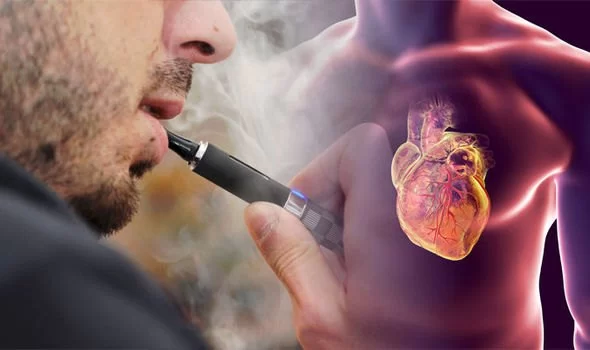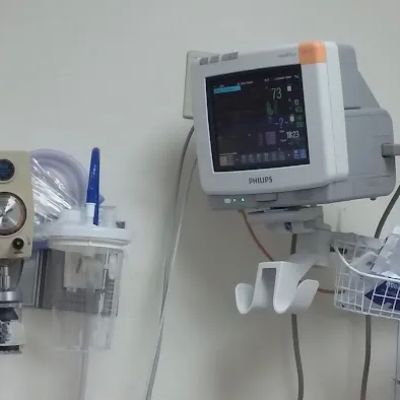The Impact of Vaping on Cardiovascular Health: A Growing Concern
Vaping has been marketed as a safer alternative to smoking, but recent research has revealed disturbing news about its effects on cardiovascular health. As the use of e-cigarettes grows, the concern about its impact on heart health becomes more pronounced. This article delves into the dangers of vaping for cardiovascular wellness, examining the risks and offering valuable insights on how to safeguard your heart.

1. Understanding the Mechanics of Vaping
Vaping involves inhaling vapor produced by an electronic cigarette (e-cigarette) or a vape device. These devices heat a liquid, commonly known as e-liquid, that contains nicotine, flavorings, and other chemicals. When the liquid is heated, it produces an aerosol that is inhaled into the lungs. While vaping doesn't involve burning tobacco like traditional cigarettes, it still poses serious health risks.
The key concern is the chemicals present in e-cigarette vapor. Some studies have shown that the vapor can contain harmful substances such as formaldehyde, acrolein, and acetaldehyde, which are known to cause damage to the lungs and cardiovascular system. Despite the lack of combustion, vaping can still trigger an inflammatory response in the body, which can contribute to cardiovascular disease.
Endeavor Health Northwest Community Hospital
endeavor health northwest community hospital
800 W Central Rd, Arlington Heights, IL 60005, USA

2. The Effect of Vaping on Heart Health
One of the most concerning aspects of vaping is its potential to damage the cardiovascular system. Recent studies have shown that the chemicals in e-cigarette vapor can have detrimental effects on the heart and blood vessels. Here are some key points on how vaping impacts cardiovascular wellness:
- Increased Blood Pressure: Research suggests that nicotine in e-cigarettes causes an increase in heart rate and blood pressure. Nicotine stimulates the release of adrenaline, leading to a temporary rise in heart rate, which over time can put additional strain on the heart.
- Endothelial Dysfunction: The endothelium is a thin layer of cells lining blood vessels. Vaping has been linked to endothelial dysfunction, which impairs the ability of blood vessels to dilate and contract properly. This dysfunction is an early sign of atherosclerosis (hardening of the arteries), a major risk factor for heart disease.
- Increased Risk of Heart Disease: Long-term exposure to the chemicals in e-cigarette vapor can contribute to the development of cardiovascular disease. Studies have shown that people who vape regularly may be at an increased risk for heart attacks, strokes, and other cardiovascular events.
3. Vaping and the Blood Vessels
Vaping has been shown to cause oxidative stress, which is a condition where harmful molecules known as free radicals accumulate in the body, leading to inflammation. This process is particularly harmful to the blood vessels, as it can damage the lining of the arteries and promote the development of plaque. As plaque builds up, it narrows the arteries and restricts blood flow, leading to an increased risk of heart attacks and strokes.
Moreover, studies have indicated that vaping may contribute to the thickening of the blood, making it more prone to clotting. This can further increase the risk of cardiovascular events, including heart attacks and deep vein thrombosis.
4. The Link Between Vaping and High Cholesterol
Some research has shown that vaping may contribute to increased cholesterol levels, which is another risk factor for heart disease. E-cigarette users may experience higher levels of low-density lipoprotein (LDL) cholesterol, often referred to as "bad" cholesterol. Elevated LDL cholesterol levels can lead to plaque buildup in the arteries, further increasing the risk of heart disease.
5. Vaping and the Risk of Blood Clots
Blood clots are one of the most dangerous consequences of poor cardiovascular health, and vaping may increase the risk of clot formation. The nicotine in e-cigarettes has been shown to promote clotting by increasing the stickiness of blood platelets. This can lead to the development of blood clots, which can block blood flow to vital organs, including the heart and brain.
Increased blood clotting can lead to life-threatening events such as heart attacks, strokes, and pulmonary embolisms. This is particularly concerning for individuals with preexisting cardiovascular conditions or other risk factors such as high blood pressure or diabetes.
6. Personal Stories: Vaping and Heart Health
To further highlight the dangers of vaping on heart health, let's take a look at a real-life example. Mark, a 35-year-old man from California, had been a regular vaper for five years. He started vaping as a way to quit smoking, but within a year, he began experiencing chest pain and shortness of breath. After several visits to his doctor, he was diagnosed with early-stage atherosclerosis—a condition often linked to smoking but now being increasingly seen in individuals who vape.
Mark’s story isn’t unique. Many young people, who initially turn to vaping as a less harmful alternative to smoking, are now discovering that the risks to their heart health are more severe than they initially thought. Health professionals have raised alarms over the increasing number of young adults showing signs of cardiovascular stress due to vaping.
7. How to Protect Your Heart from the Risks of Vaping
If you currently vape or are considering trying e-cigarettes, it's important to be aware of the potential risks to your heart health. Here are some steps you can take to reduce your risk:
- Quit Vaping: The most effective way to protect your cardiovascular health is to quit vaping altogether. Seek help from healthcare professionals or support groups to make the transition easier.
- Monitor Your Heart Health: If you're a regular vaper, it's important to get regular check-ups with your doctor. Monitoring your heart health, blood pressure, and cholesterol levels can help detect early signs of cardiovascular problems.
- Adopt a Heart-Healthy Lifestyle: Eat a balanced diet, exercise regularly, and avoid other harmful habits such as excessive alcohol consumption. These lifestyle changes can help improve your overall heart health and mitigate the effects of vaping.
8. Conclusion: The Need for Awareness
Vaping may appear to be a safer alternative to smoking, but the growing body of research suggests otherwise, especially when it comes to cardiovascular wellness. The sweet and tempting allure of vaping can lead many to overlook its potential long-term effects on the heart and blood vessels. As we continue to learn more about the health risks of vaping, it is essential for individuals to stay informed and make decisions that prioritize their heart health.
For more guidance on maintaining heart health and to explore heart-healthy products, visit HeartCare Hub to find expert advice and recommendations tailored to your wellness needs.






















Capital Health Medical Center – Hopewell
capital health medical center hopewell
1 Capital Way, Pennington, NJ 08534, USA